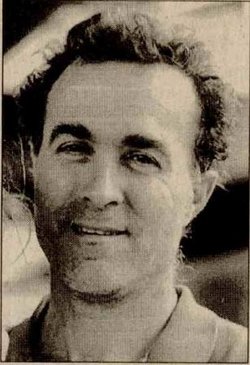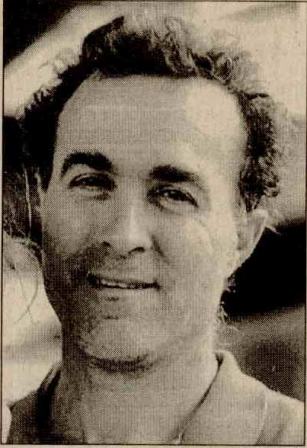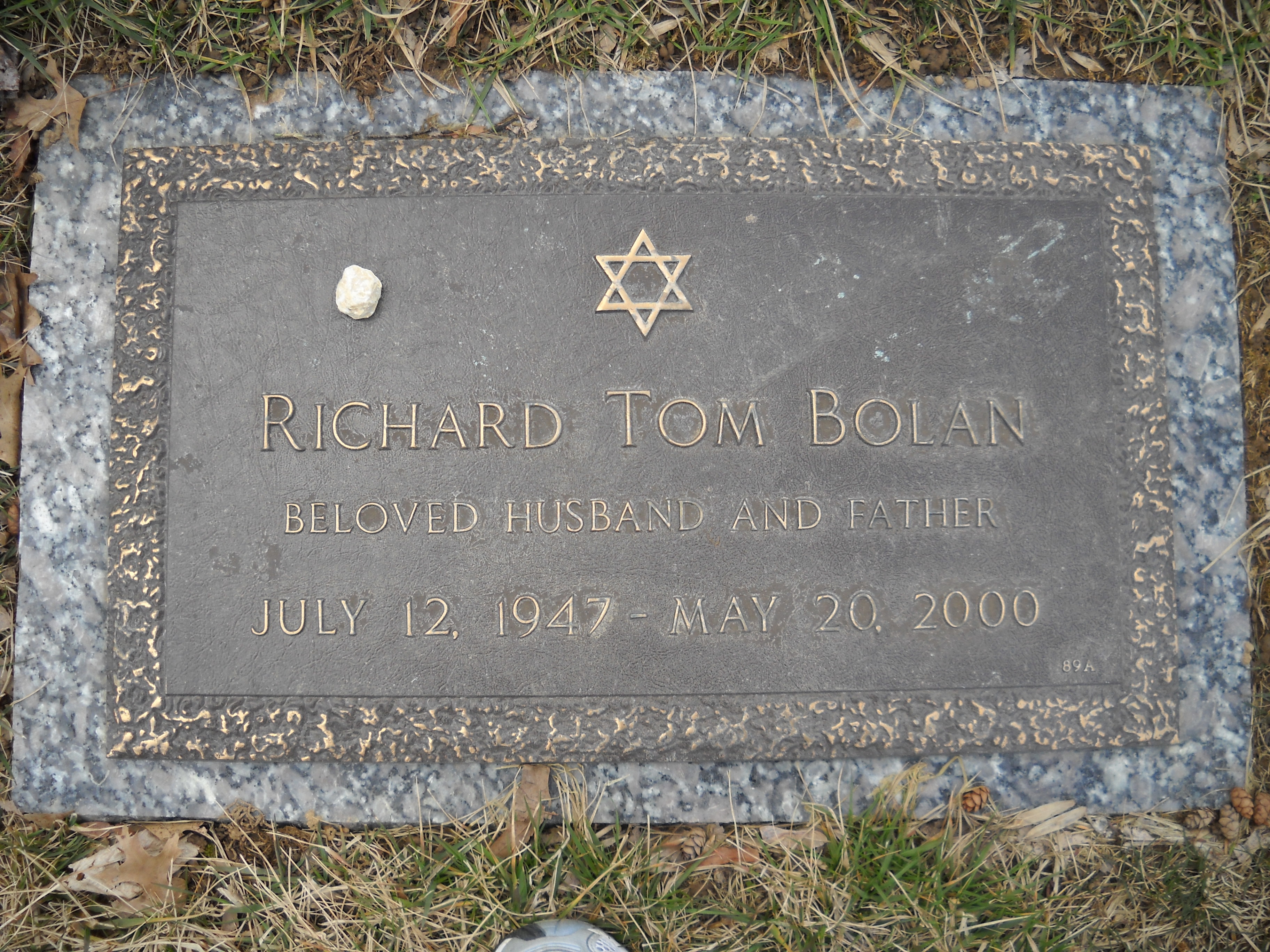By Frederick N. Rasmussen, Sun Staff
Published in the Baltimore Sun, May 24, 2000
Richard Tom Bolan, a social worker and civil rights lawyer who championed the causes of wheelchair users and the elderly, died Saturday of esophageal cancer at Gilchrist Center for Hospice Care in Towson. He was 52 and lived in Roland Park.
The 1979 case involving Thomas J. Turner, a paraplegic, who was arrested and deemed a "fire hazard" for blocking a ramp at Memorial Stadium with his wheelchair during an Orioles game sparked Mr. Bolan's activism.
As counsel to Mr. Turner and Disabled in Action in Baltimore, a national organization that seeks to end discrimination against people with disabilities, Mr. Bolan succeeded in getting the charges against Mr. Turner dismissed on appeal.
The case had a lasting effect. On opening day in 1980, the Orioles and Disabled in Action in Baltimore agreed to make available 80 places in four sections of the stadium for fans in wheelchairs, 15 toilets equipped for the physically challenged and 30 special parking places.
Mr. Bolan and Mr. Turner then spent nearly seven years in litigation with the Mass Transit Administration to force the state agency to make buses accessible to the handicapped.
Then, after a wheelchair in which a 13-year-old retarded girl was strapped rolled off the Inner Harbor promenade and she drowned, they successfully battled the city over safety measures at the popular tourist attraction. The city placed life preservers along the promenade, among other measures.
"There are thousands in Baltimore who owe him a great debt who don't even know his name," said Mr. Turner, a Ruxton resident still active in the movement.
"In those years, they were throwing people in wheelchairs in jail for demonstrating," he said, recalling the legal battles. "Today, they travel to Camden Yards aboard light rail trains and both [downtown stadiums] are accessible to the physically challenged."
"Richard was instrumental in providing the legal background for our arguments to stand up," Mr. Turner said. "He used to say that the money the MTA lawyers spent fighting us could have outfitted every bus in Baltimore with the special equipment needed to make buses accessible. It doesn't matter how many handicapped ramps you build if people can't travel from point A to B.
"I used to tell Richard, 'They may have better suits, but you have better character.' In over 22 years of working together, he never sent me a bill," Mr. Turner said.
"His commitment to the disabled community and leadership elevated the organization's effectiveness to the stratosphere," said Philip H. Farfel, former president of Disabled in Action who now heads the Farfel Group, a grant-writing organization in Baltimore.
"He initiated court cases that ensured the civil rights of the disabled. He had the guts, courage and intellectual skills to do this, and with the Memorial Stadium case, it was right in the middle of the World Series," Mr. Farfel said. "When it got to the point where the disabled couldn't go to a ballgame, he just seized on it. And because of his efforts, both new stadiums today are fully accessible.
"Not only did he spend his own money, more importantly, he spent his own time. What he accomplished was quite remarkable," Mr. Farfel said.
Tiring of the law in recent years, Mr. Bolan earned a master's degree in social work from the University of Maryland, Baltimore in 1994. He founded the Helping Families Stay Together program, which is sponsored by the Baltimore Department of Social Services and the Family League of Baltimore City. His leadership also helped open a child care center in the Westport-Mount Winans neighborhood in Southwest Baltimore.
"I don't think his elbows were sharp enough to practice law. I think he had become very disillusioned by the practice of law," said Andrew D. Levy, a longtime friend and partner in the Baltimore law firm Brown, Goldstein & Levy.
"I think in recent years, he was happier than he had ever been, and I think his social work brought him a great deal of satisfaction. I know it sounds like a cliche, but he really was a publicly spirited guy who cared," Mr. Levy said.
Born in Towson, Mr. Bolan was a 1965 graduate of Towson High School and earned a bachelor's degree in 1969 from the University of Michigan, where he had been active in the anti-war movement. He served two tours in Vietnam with Army intelligence from 1969 to 1972.
He earned a law degree from the University of Maryland School of Law in 1975 and his first master's degree, in constitutional law, from New York University School of Law in 1978.
A memorial service for Mr. Bolan was held yesterday [May 23,2000].
He is survived by his wife of eight years, the former Nancy Maitland; a daughter, Rachel Bolan of Roland Park; his mother, Dorothy Bolan of Towson; a brother, Gary T. Bolan of Kingsville; and a sister, Wendy Ferguson of Eldersburg.
By Frederick N. Rasmussen, Sun Staff
Published in the Baltimore Sun, May 24, 2000
Richard Tom Bolan, a social worker and civil rights lawyer who championed the causes of wheelchair users and the elderly, died Saturday of esophageal cancer at Gilchrist Center for Hospice Care in Towson. He was 52 and lived in Roland Park.
The 1979 case involving Thomas J. Turner, a paraplegic, who was arrested and deemed a "fire hazard" for blocking a ramp at Memorial Stadium with his wheelchair during an Orioles game sparked Mr. Bolan's activism.
As counsel to Mr. Turner and Disabled in Action in Baltimore, a national organization that seeks to end discrimination against people with disabilities, Mr. Bolan succeeded in getting the charges against Mr. Turner dismissed on appeal.
The case had a lasting effect. On opening day in 1980, the Orioles and Disabled in Action in Baltimore agreed to make available 80 places in four sections of the stadium for fans in wheelchairs, 15 toilets equipped for the physically challenged and 30 special parking places.
Mr. Bolan and Mr. Turner then spent nearly seven years in litigation with the Mass Transit Administration to force the state agency to make buses accessible to the handicapped.
Then, after a wheelchair in which a 13-year-old retarded girl was strapped rolled off the Inner Harbor promenade and she drowned, they successfully battled the city over safety measures at the popular tourist attraction. The city placed life preservers along the promenade, among other measures.
"There are thousands in Baltimore who owe him a great debt who don't even know his name," said Mr. Turner, a Ruxton resident still active in the movement.
"In those years, they were throwing people in wheelchairs in jail for demonstrating," he said, recalling the legal battles. "Today, they travel to Camden Yards aboard light rail trains and both [downtown stadiums] are accessible to the physically challenged."
"Richard was instrumental in providing the legal background for our arguments to stand up," Mr. Turner said. "He used to say that the money the MTA lawyers spent fighting us could have outfitted every bus in Baltimore with the special equipment needed to make buses accessible. It doesn't matter how many handicapped ramps you build if people can't travel from point A to B.
"I used to tell Richard, 'They may have better suits, but you have better character.' In over 22 years of working together, he never sent me a bill," Mr. Turner said.
"His commitment to the disabled community and leadership elevated the organization's effectiveness to the stratosphere," said Philip H. Farfel, former president of Disabled in Action who now heads the Farfel Group, a grant-writing organization in Baltimore.
"He initiated court cases that ensured the civil rights of the disabled. He had the guts, courage and intellectual skills to do this, and with the Memorial Stadium case, it was right in the middle of the World Series," Mr. Farfel said. "When it got to the point where the disabled couldn't go to a ballgame, he just seized on it. And because of his efforts, both new stadiums today are fully accessible.
"Not only did he spend his own money, more importantly, he spent his own time. What he accomplished was quite remarkable," Mr. Farfel said.
Tiring of the law in recent years, Mr. Bolan earned a master's degree in social work from the University of Maryland, Baltimore in 1994. He founded the Helping Families Stay Together program, which is sponsored by the Baltimore Department of Social Services and the Family League of Baltimore City. His leadership also helped open a child care center in the Westport-Mount Winans neighborhood in Southwest Baltimore.
"I don't think his elbows were sharp enough to practice law. I think he had become very disillusioned by the practice of law," said Andrew D. Levy, a longtime friend and partner in the Baltimore law firm Brown, Goldstein & Levy.
"I think in recent years, he was happier than he had ever been, and I think his social work brought him a great deal of satisfaction. I know it sounds like a cliche, but he really was a publicly spirited guy who cared," Mr. Levy said.
Born in Towson, Mr. Bolan was a 1965 graduate of Towson High School and earned a bachelor's degree in 1969 from the University of Michigan, where he had been active in the anti-war movement. He served two tours in Vietnam with Army intelligence from 1969 to 1972.
He earned a law degree from the University of Maryland School of Law in 1975 and his first master's degree, in constitutional law, from New York University School of Law in 1978.
A memorial service for Mr. Bolan was held yesterday [May 23,2000].
He is survived by his wife of eight years, the former Nancy Maitland; a daughter, Rachel Bolan of Roland Park; his mother, Dorothy Bolan of Towson; a brother, Gary T. Bolan of Kingsville; and a sister, Wendy Ferguson of Eldersburg.
Sponsored by Ancestry
Advertisement
Advertisement




